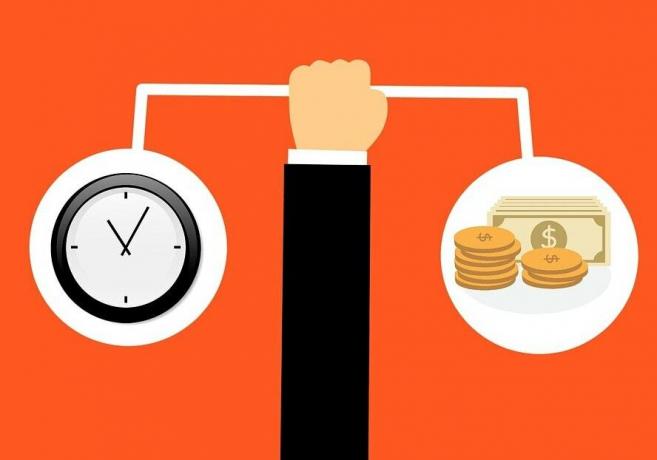The issue of interests in the economy has been treated since ancient times, considering different criteria, being thus several authors who have expressed their opinion on the matter originating different theories to explain the concept of interest theory.
Since then usury, as interest is also known, was mentioned as something immoral. However, over time it was explained, that the fact of charging when selling a price with the pretense of a Payment in the future implied risk, which was assumed by the borrower, which was taken as interest.
Advertisements
Interest in this case is the price paid for the preference to own an asset in the present. Let's see then what is the theory of interest.
In this article you will find:
What is the interest theory?
In principle, we must point out that it is not a single theory that exists to answer the different questions that arise around the collection of interest. Such as Why does capital earn interest? What are the factors that give rise to the interest? What are the interest rates?
Advertisements
To receive interests that in some cases were considered exaggerated was much objected in medieval times.
Despite recognizing that whoever lends the money must receive a profit since he gives up his capital and assumes the risk of losing or receiving your payment in unforeseen periods, allowed the so-called usury to cease to be a drawback.
Advertisements
Throughout history the subject has been widely treated by philosophers, scholastics and economists who have issued their own postulates and considerations in this regard.
However, some of the elements or points in common regarding the topic of interest are the following:
Advertisements
- Its link to time.
- Charging interest on money was known as usury.
- They are the price paid for the credit.

What are the theories of interest that exist?
Some of the most prominent theories on the subject and the aspects that each of them highlights are the following:
Advertisements
Theory of interest described by Böhm-Bawerk
This Austrian author shows his thoughts through his works and highlights the link between interest and capital. He points out that the value of each thing is related to individual need. With regard to interest, he considers that previous theories present a common error, since they do not take interest as a consequence of exchanging goods in the present and the same in the future.
Theory of Interest according to Irving Fisher
Economist of North American origin, author of the explanation linked to psychology, published in the year 1930, he refers to the interest based on what he called the eagerness to spend.
Fisher considers the productivity of capital and deepens the postulates issued by Eugen Bohm-Bawerk. The author refers to the productivity of capital as the opportunity to invest.
J. Locke and the Swedish theory
The author refers to loanable type funds, where it is mentioned that the interest will be linked to the benefits generated by the trade.
N. Senior
He explains that the collection of interest is based on the fact that whoever gives the capital abstains from consuming at the present time.
K. Wicksell
This author warns about the aspects related to the currency that are linked to interest and harmonize the theories that to date predominated with his monetary vision.
J.M. Keynes
Who is considered a precursor of macroeconomics in modernity, points out in his theory the reward for not maintain capital as liquid money, that is, an asset that can quickly become currency.
Robertson, Hicks, and Ohlin's Loanable Funds Theory
In this theory it is mentioned that interest is determined by the supply and demand of the funds loanable, understanding the latter as the money available to lend, instead of being used in the own consumption.
Theory of sacrifice
Theory that indicates that money is returned with interest as a reward for postponing consumption.
The theory of risk
This treats the interest as a reward to whoever took the risk, trusting the counterparty with their capital.
Dynamic theory
It is one more of the theories that treat interest, it maintains that with the money or borrowed capital they are made investments, so that the use of other people's funds implies that they participate in the benefits that the productivity.
Discussion or controversy about theories of interest
A lot of controversy and discussion has arisen around these theories. In general, they are based on linking the concepts of capital, risk and time.
So it was understood that the interest somehow compensated the owner of the money or capital, calling itself in different ways, income, interest, dividend. However, the approach was the same, the interest was paid for using the capital or money.
All existing theories on the subject contribute in some way to the explanation of this concept.


